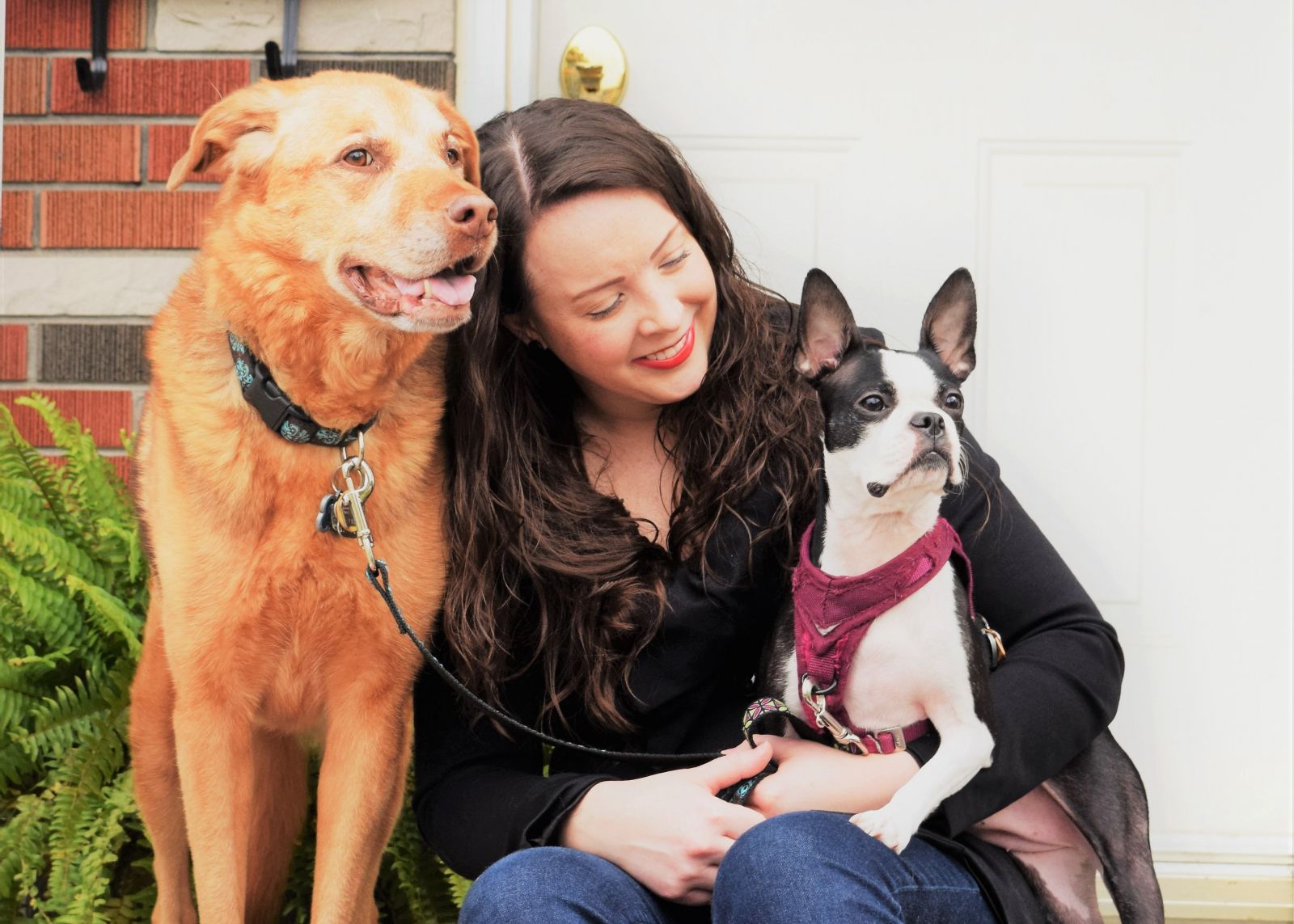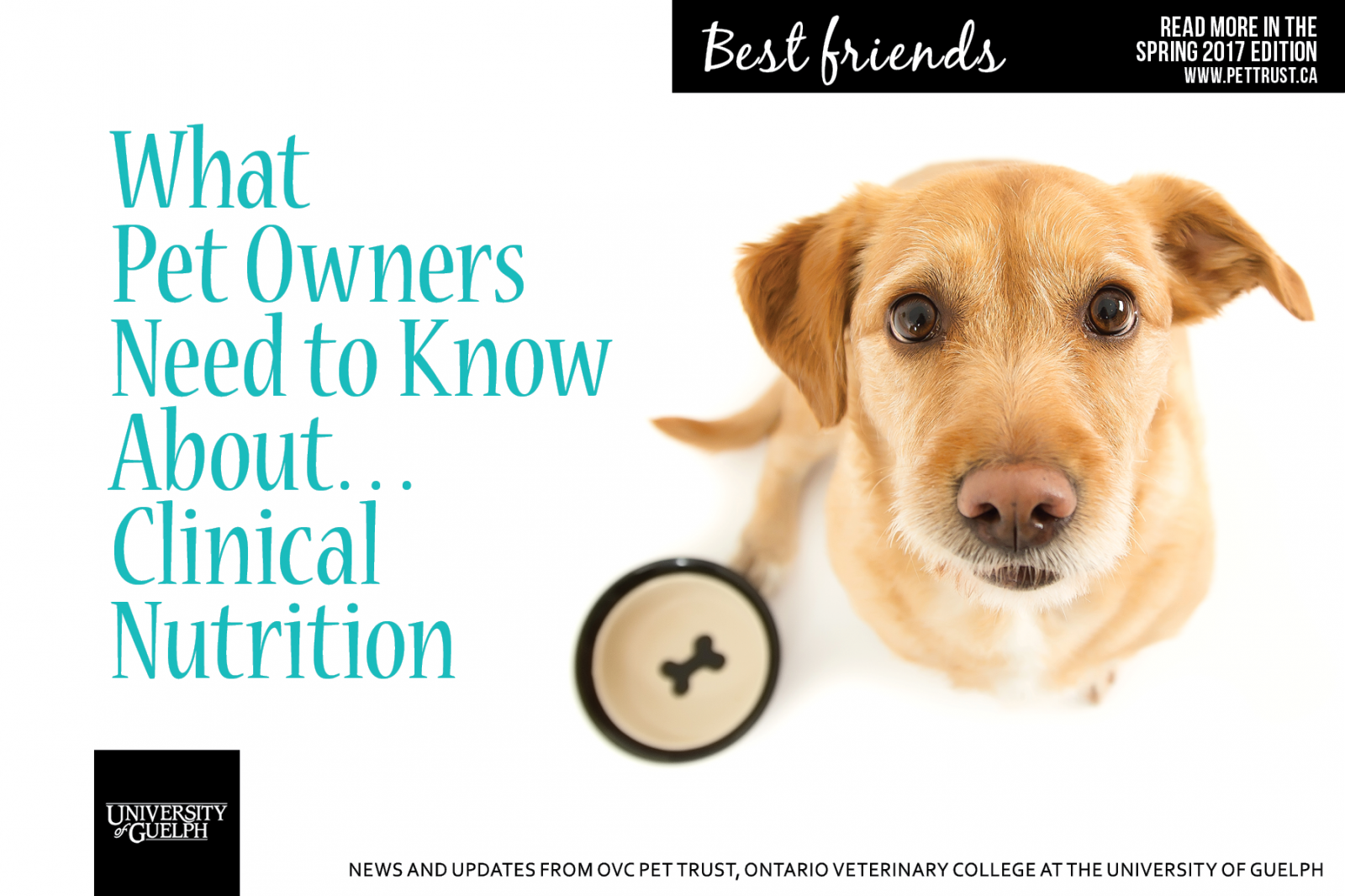Did you know nutrition is one of the factors that pet owners have the greatest control over to maximize their dog or cat’s overall health and life expectancy? Even so, according to 2016 survey results from the Association for Pet Obesity Prevention, it is estimated 59 per cent of cats and 54 per cent of dogs are overweight or obese in the United States.
But why should pet owners be concerned if Fido or Kitty is overweight? How do you even know how to gauge if your pet is over, under or an ideal weight? Veterinarians use body condition scoring to determine what category your pet falls into. An ideal body condition score (which is defined as a score of either 4 or 5 out of 9) is assigned when a pet’s ribs are easily palpable with minimal fat covering, their waist can be clearly noted when viewed from above and their abdominal tuck is evident. As a good rule of thumb, if you hold your left hand flat with your knuckles facing the sky and gently run your right hand over your knuckles, you can understand what your pet’s ribs should feel like. You should not need to apply a lot of pressure to feel a pet’s ribs. If a pet has a body condition score of 6 or greater out of 9, this score indicates the pet has an overweight body condition.
Being overweight can not only shorten a pet’s life, it also predisposes them to certain diseases such as diabetes and earlier onset of arthritis and can cost owners financially in avoidable medical costs.
Dr. Jackie Parr, also known as “The Kibble Queen”, is a veterinary clinical nutritionist and adjunct professor at the Ontario Veterinary College (OVC), University of Guelph. She is one of four small animal board-certified veterinary clinical nutritionists in Canada and passionate about keeping veterinary professionals, pet owners and student veterinarians in the know about how to keep dogs and cats in the best health possible through a nutritious and balanced diet.
In her role at OVC, Dr. Parr helps prepare the next generation of veterinary leaders through the fourth year Clinical Nutrition Rotation elective. As part of OVC’s clinical nutrition team, Parr equips students with the diet and nutritional knowledge they will need once in practice, which includes: learning how to talk to pet owners about nutrition, developing weight loss plans, using elimination diet trials to diagnose for food allergies and managing urinary crystals and stones. Student veterinarians are also taught to use scoring systems to evaluate a pet’s nutrition, including body condition, muscle condition and fecal scoring systems.
“The veterinary team plays an important role in helping pet owners make the correct nutritional choices for their pet,” explains Dr. Parr. “Veterinarians should complete a nutritional assessment at every appointment. Assessments allow pet owners to dis- cuss their diet-related concerns and work with their veterinarian to develop an individualized meal plan to meet their pet’s needs. Each pet should be treated as an individual when it comes to nutrition. Additionally, a comprehensive diet plan may need to be created to help manage or improve medical conditions for pets with more complex or multiple health challenges such as food allergies, bladder stones, kidney diseases, liver diseases, intestinal diseases and more.”
Since not all life stages are the same and growing puppies and kittens have very different nutritional needs than adult dogs or cats, pet owners can ask their veterinarian to advise on their pet’s individual nutritional needs as they age.
Dr. Jackie Parr graduated from the Ontario Veterinary College in 2009, and became a Diplomate of the American College of Veterinary Nutrition (ACVN) in 2015. In June 2016 she was awarded the OVC Young Alumnus Award. Connect with The Kibble Queen on Facebook: www.facebook.com/the.kibble.queen.
The Ontario Veterinary College is the only veterinary school in Canada with a Chair in companion animal clinical nutrition (the Royal Canin Endowed Chair in Canine and Feline Nutrition). OVC Pet Trust invests to support work examining a variety of nutrition research projects, including investigating the role of Vitamin D in dogs with cancer and the benefits of supplementing patients with thiamine (Vitamin B1).

Dr. Jackie Parr with her dogs Hennessy and Chickpea.


